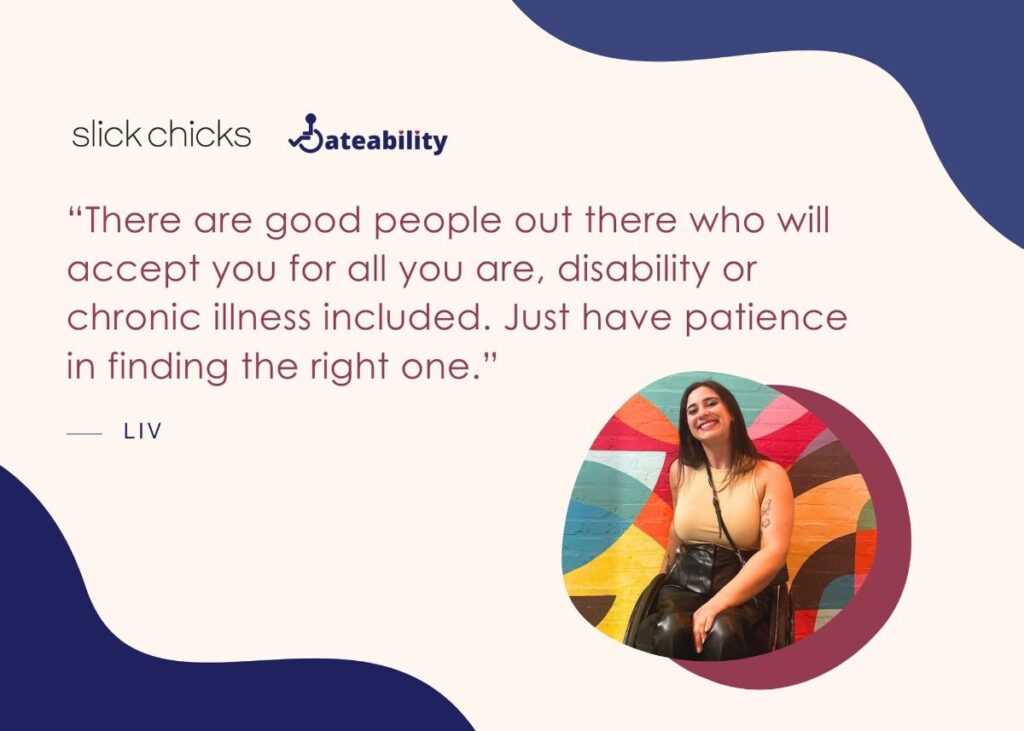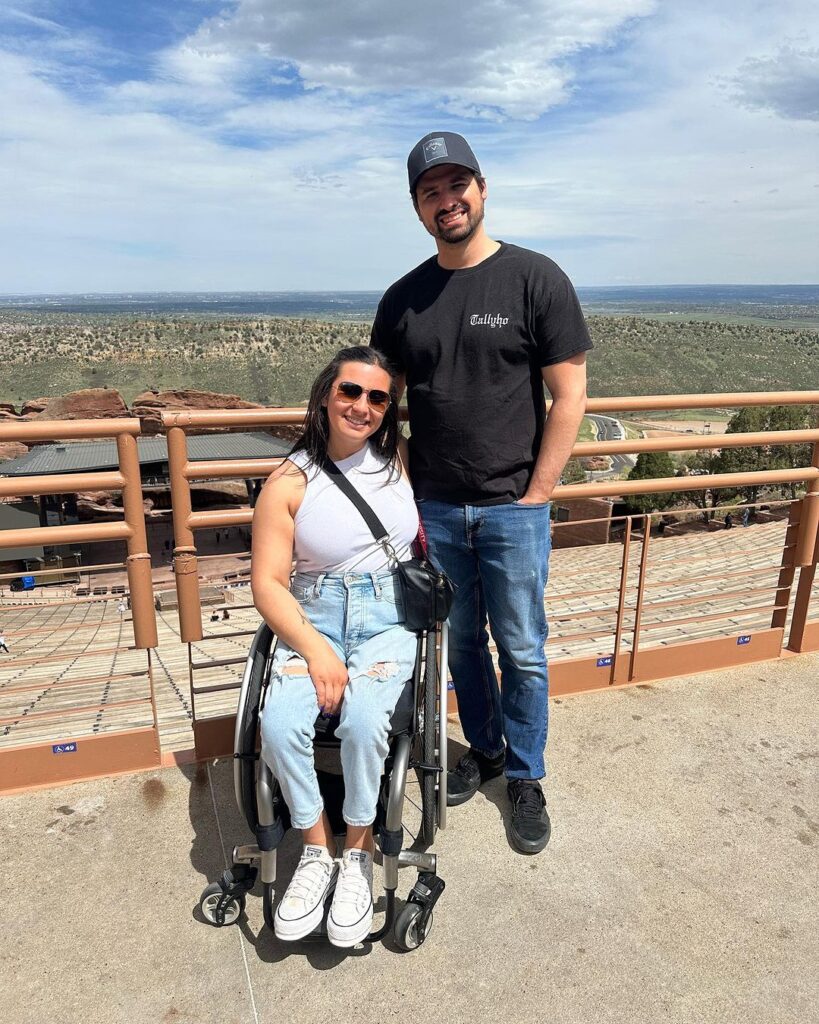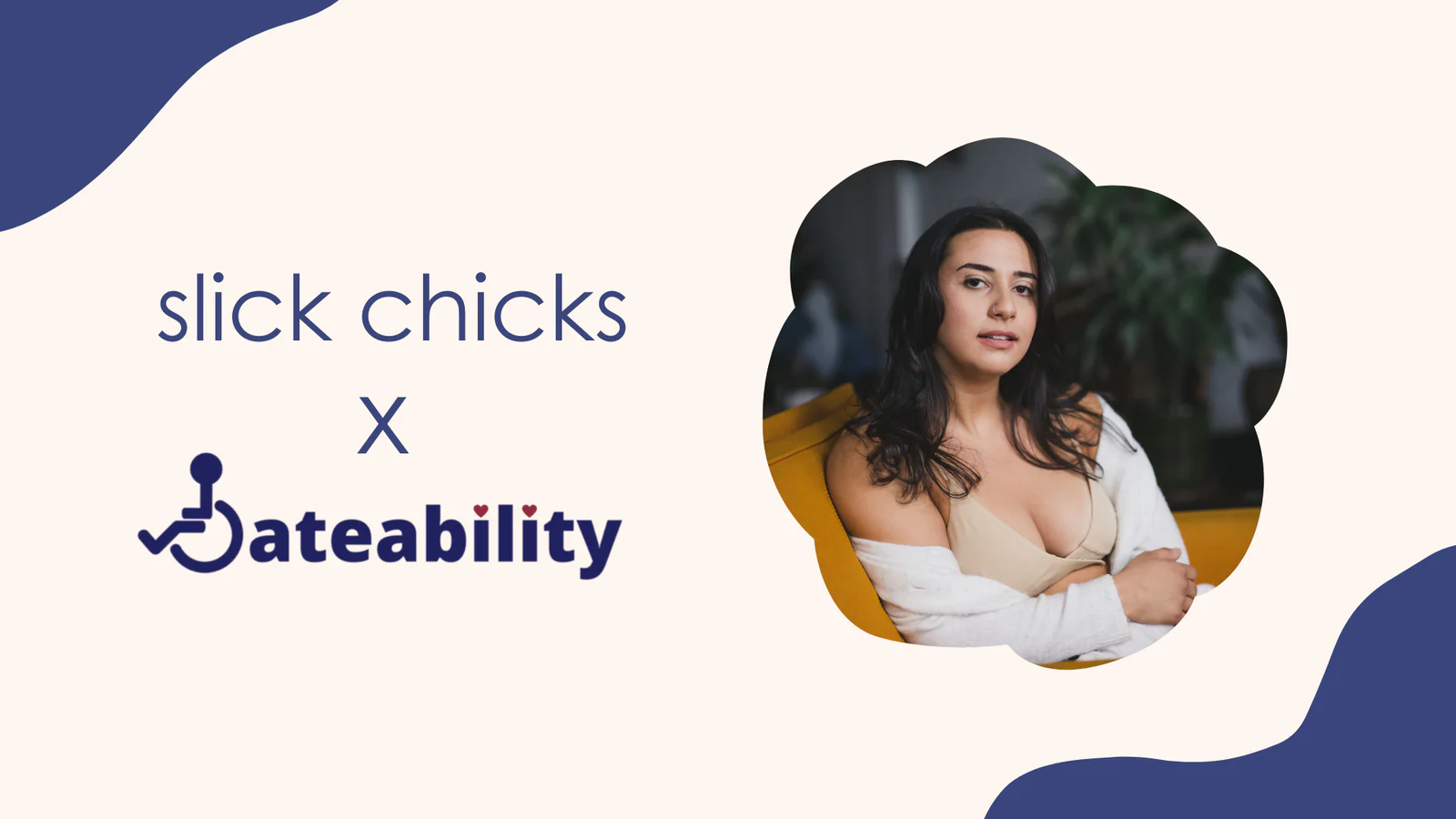Slick Chicks and Dateability are teaming up to open up the world of dating, focusing on real-life stories. Our partnership merges Slick Chicks’ commitment to inclusivity with Dateability’s innovative platform, creating a narrative that challenges preconceptions and highlights the joys and challenges of dating for those with disabilities and chronic illnesses. By leveraging the voices of ambassadors who live these experiences, we aim to inspire, educate, and foster a more understanding and inclusive dating environment for all.

The following is an interview with Olivia Bender:
Can you share a little about your personal journey and how it has shaped your approach or perspective on dating?
I have been a wheelchair user for almost 15 years now; I started using one at the age of 14. For many people, this is the age where you really start dating. I have a very rare auto-immune disease and was paralyzed from the waist down in a matter of minutes. I was going into my sophomore year of high school and I was definitely a little boy crazy. I was constantly comparing myself to other girls who were able-bodied thinking that no one would want to be with me because of my disability. I realized that the more confident I was, the more people would be attracted to me. The more I learned about my disability and my body’s capabilities, the more I realized that there was no reason for me not to be able to date. My disability didn’t make me unlovable or undatable. As I’ve gotten older, and I’ve surrounded myself with a large disabled community, my confidence has sky rocketed. The more confidence I have, the more dates I go on. Now, I’m in the happiest and healthiest relationship of my life with a man that doesn’t care one way or the other that I use a wheelchair. It’s proof that people with disabilities can find love and live happy lives.
What have been some of the biggest challenges and triumphs you’ve faced in the dating world as a person living with a disability or chronic illness?
I have faced a lot of challenges in the dating world as a disabled woman, mostly because it’s not the “norm” and people are always curious. I felt like when I was dating, I was constantly answering invasive questions that people always had, and many dates didn’t follow the typical timeline of a typical date. I always wished that the first thing people asked me didn’t have to do with my disability, but many times it did. It was also very important for me to be extremely clear that I am disabled and not hide anything on dating profiles. I felt like I always had to plan the dates to make sure they were accessible. Even though I have had my fair share of successful dating stories, I’ve had a lot where people are very judgmental or ‘put off’ by my disability. They think I’m looking for a caretaker or that I’m not capable of doing things on my own, which in my situation is not true. I always felt like I had to prove myself to new people I was dating to show that my disability didn’t keep me from doing anything.
How has embracing your identity and overcoming personal challenges impacted your confidence in dating and romantic relationships?
The more I embrace my disabled identity, the more confident I become, and I think you attract people with confidence. As I’ve gotten older, I have met many many beautiful disabled women. It’s living proof that we are all beautiful, despite any disabilities. The more confident I was, the more dates I went on, and the more dates I went on, the more confident I became. Accepting that being disabled will always be a part of my life allowed me to open up more to people and not hold back.
Choosing what to wear on a first date can speak volumes and play a significant role in one’s confidence. Could you share your thought process on selecting the perfect outfit for a first date, especially considering your needs for comfort and accessibility?
I am a very casual person and will most likely never dress up for a first date, unless it’s taking place somewhere fancy. My go to was always jeans and a cute shirt with some Vans or Converse. Casual but cute. Comfortable and practical and easy to move around in. I rarely wear dresses because I am slightly self conscious of my atrophied legs, but I always show off my muscular arms.
What advice would you give to others with disabilities and chronic illnesses about navigating the complexities of dating and relationships?
I would tell others with disabilities and chronic illnesses that you need to learn to love yourself before others will love you. The more comfortable you are in your skin, the more people you will attract. I also would say to never let a bad date ruin your opinions on dating. There are always going to be bad dates, but that’s just the stepping stone to some good ones in the future. There are good people out there who will accept you for all you are, disability or chronic illness included. Just have patience in finding the right one.


